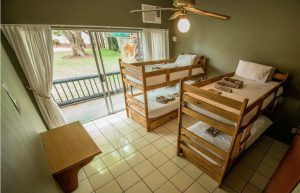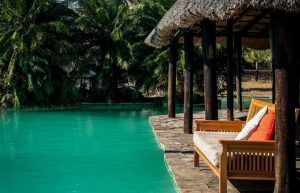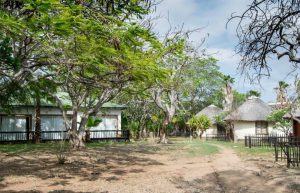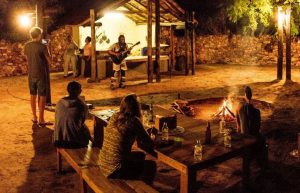
Please Note: This program is temporarily unavailable. Check out our alternative programs in Africa or schedule a one-on-one call with one of our expert volunteer advisors.
Big cat lovers with an interest in research will be able to enjoy researching and volunteering with big cats in the Greater Kruger Area. Spend your days contributing to the conservation of these African animals and your nights stargazing as you spend your time in the wild.
Program Highlights:
Your Schedule at a Glance (Minimum four-week commitment):
Arrival Day, Sunday: Arrive at Kruger Mpumalanga International Airport (KMI). You will be picked up at the airport and transferred to your new home in the Greater Kruger Area. Take some time to rest, your volunteering starts the next day!
Days 1-5, Monday-Friday: Upon your first work day, you will have an important orientation on your first day to ensure you’re well prepared for all your upcoming work on the project. As a research volunteer, your days will be filled with all types of research projects. Tasks can include setting camera traps, collating predator data, identifying species and going on game drives. You will also participate in conservation projects such as invasive plant removal and community involvement activities. Your evenings will be spent socialising with other volunteers, enjoying BBQs and even going on an overnight camping trip.
Days 6-7, Saturday-Sunday: Your weekends are free for you to explore and enjoy your time in South Africa. Go on an organised trip to Kruger National Park or down the famous Panorama Route. If you’re looking for adventure then visiting the Blyde River Canyon is a must!
Remaining Weeks: The remaining weeks will follow a similar schedule of volunteering Monday-Friday and having Saturday-Sunday off. Spend your weekends resting or going on trips around the area. You can even hop over to Eswatini if you fancy visiting another country! Departures are on a Sunday
Click to see additional volunteering projects in South Africa.







What’s Included




What’s not Included
Flights, visas (if required), travel health insurance, personal expenses

This project is based in the Greater Kruger Area close to the famous Kruger National Park – one of the largest game reserves in Africa and home to Africa’s ‘Big 5’ species. The park stretches across the Limpopo and Mpumalanga provinces in northeastern South Africa. With over 500 bird species, 100 reptiles, 150 mammal species, multiple archaeological sites, and an equally diverse array of trees and flowers, Kruger truly exemplifies the majesty of Africa.

As recently as 1975, over 200,000 lions may have roamed the African continent. In 2002, estimates put the population between 23,000 and 39,000, representing an 80 – 90% decline in less than 30 years. This program specifically focuses on the conservation of lions and leopards, both of which have experienced decreased populations due to hunting and poaching.
The research, monitoring, tracking and data collection carried out throughout this project is aimed at understanding the reproductive, territorial, hunting, and social behaviors of the lion and leopard populations, and plays a vital role in the ongoing conservation and protection of Africa’s big cats. You will have the opportunity to work side-by-side with researchers to assist them in data collection and observations of the animals.
Some of your tasks may include:
Your time will be divided approximately as follows:










Please take note of this project’s minimum requirements:

Travel Extras (Not Included):
Add on our eight-day Garden Route Road Trip to enhance your South Africa experience!
There is an abundance of places to go and sights to see during your free time in South Africa. The following activities are available for an additional fee:
Day Tours:
Weekend Trips:

© 2022 GOECO | All rights reserved
Develop & Design | Msite